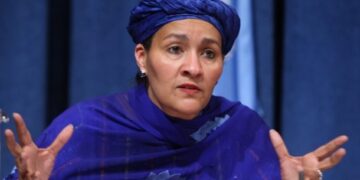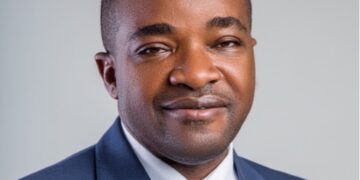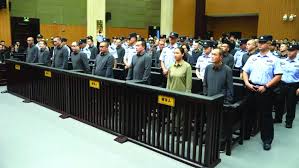As Nigerians eagerly await the final results of the bye-lections conducted across 13 states on Saturday, August 16, the recurring issues about the polls seem to be the prevalence of vote-buying, and intimidation of voters, which were widely reported in most of the voting centres in various states.
In Oyo the candidate of the African Democratic Congress (ADC) in Saturday’s bye-election in Ibadan North Federal Constituency, Dr. Femi Dexter Akin-Alamu, alleged that vote-buying openly took place in some polling units and wards during the election.
Akin-Alamu made the claim while speaking with journalists after voting at Unit 038 Ward 11 in the University of Ibadan on Saturday.
The ADC candidate said he had been informed that massive vote-buying also took place in some other areas.
He, however, said the vote-buying was possible due to the high level of poverty in the country.
“There is vote buying going on; it is not an allegation. There is vote buying going on from wards one to four.
“I have the report of what is going on in Wards seven, eight and 12. So, they are not allegations. It is not an allegation; it is something that is going on.
“It is a wholesale thing. It is as a result of the fact that they are giving people money, due to the level of poverty.
“In the past, it used to be done in an enclosure. But today, it is being done in the open,” he said.
In Kaduna, our correspondent reported that the allegations of votes buying by agents suspected to be supporters of the ruling All Progressive Congress (APC) and intimidation of voters by security operatives were reported in poling units in Ungwan Boro Duse units in Chikun LGA.
Political party agents led by the main opposition’s Peoples Democratic party (PDP), in Sabon Tasha ward, Emmanuel Yakubu of Sabon exco ward confirmed this to our reporter at Philolo 84 Ungwan Boro poling unit.
Mr. Yakubu, further alleged that APC supporters “are given voters cash between N3000 -N5000 behind the scene, and calling some others from home on phone to come and vote for their candidate with money awarded.
The PDP agent lamented that front and back, left, right and centre, voters were being called by APC supporters and given alms before casting their votes.
In some cases, he said “people are being called on phone even now as you can see them by my side by those who know them and treated before casting votes under the glare of security operatives, pointing at some directions where the incidents were taking place.
While party agents in some polling units complained bitterly against the APC vote-buying, there were no complaints against other political party by APC agents.
In Ungwan Boro primary school, hosting unit C 30 and C 31, a black tinted SUV with sealed plate number, suspected to be vote buyer was sighted with full police escort, with APC tag carrying cash out of the vehicle to a gathering of voters at the back of primary school near entrance gate.
Meanwhile, the Department of State Services (DSS) reportedly arrested one Shehu Fatange, with about N30 million allegedly earmarked for vote-buying in Kaduna State.
Shehu Fatange, suspected to be a Peoples Democratic Party (PDP) agent, was picked up on Friday evening at a hotel in the Kaduna metropolis, where he was said to be coordinating the distribution of the funds meant to influence voters in the Chikun/Kajuru Federal Constituency election.
Reliable security sources confirmed that the suspect was caught in possession of cash running into tens of millions, allegedly intended to compromise the integrity of the polls.
The Kaduna State Police Command also confirmed the arrest, through its spokesman DSP Mansir Hassan, in a telephone chat with our journalist, saying the suspect was in custody and under investigation.
He however, declined to give further details, noting that security agencies were working together to ensure free, fair and credible elections.
The Bimodal Voter Accreditation System (BVAS) proved to be a critical tool in the conduct of the polls. Its use for both voter verification and accreditation was a significant step towards a more transparent and fraud-free process. Voters presented their PVCs, and the BVAS was used to confirm their identity and authenticate their fingerprints. The “No PVC, no voting” rule, which was strictly enforced, ensured that only registered voters could participate. This adherence to procedure helped to build public confidence in the process, though it also meant that some individuals who were unable to present a valid PVC were disenfranchised.
Security was another crucial element of the day’s conduct. Security agents were deployed to the polling units to maintain order, protect electoral officials and materials, and prevent any form of voter intimidation or violence. The presence of security personnel, along with local and international election observers, helped to deter potential disruptors and ensured that the electoral process was largely peaceful.
Despite the generally smooth conduct of the elections, some challenges persisted. In some areas, voter turnout was reported to be low, a recurring issue in Nigerian elections, particularly in bye-elections where the stakes may be perceived as lower than in general elections. This can be attributed to voter apathy, lack of sufficient public awareness, or security concerns. The issue of political parties and their internal disputes also remained a factor, with some parties voicing complaints about their exclusion or other issues that could potentially lead to post-election litigation.
Overall, the conduct of the bye-elections on August 16, 2025, demonstrated INEC’s continued efforts to refine and improve the electoral process in Nigeria. The Commission’s reliance on technology, adherence to legal frameworks, and engagement with stakeholders were key to the relative success of the polls. While challenges like low voter turnout and political disputes remain, the bye-elections served as an important litmus test for the electoral body and a valuable learning experience as the country moves towards future elections. The results, when announced, will not only determine who fills the vacant seats but also provide a barometer of the political mood in the affected regions.























